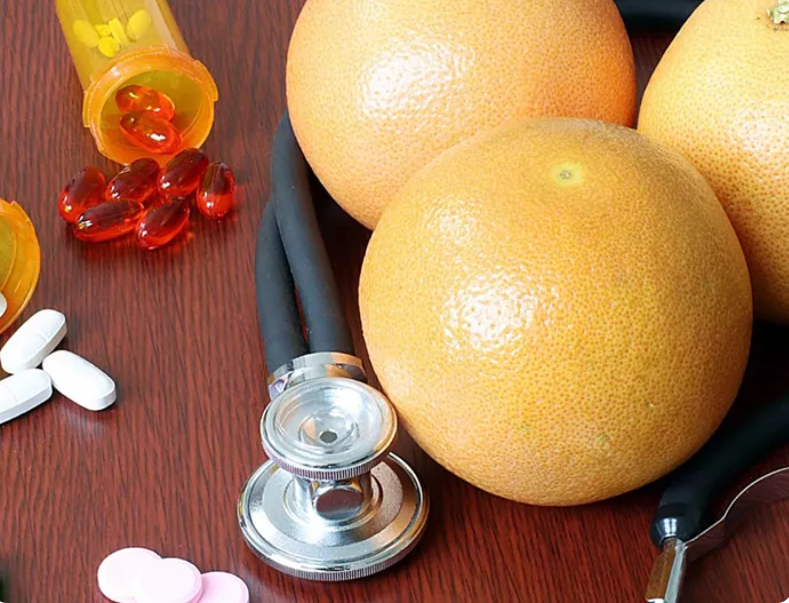Most people take their medication with little thought to what they’ve just eaten or plan to eat. But what you put on your plate could be altering how your medication works or whether it works at all.
Certain foods can block drugs from being absorbed, intensify side effects, or cause toxic reactions. The science is strange, and sometimes even a little scary.
Grapefruit: The Enzyme Saboteur
Grapefruit is a well documented example. It contains compounds called furanocoumarins that inhibit an enzyme in the intestine known as CYP3A4, which is responsible for breaking down many medications.
If that enzyme is blocked, drugs like statins, anti-anxiety medications, and some blood pressure pills can accumulate to dangerous levels. Even a single glass of grapefruit juice can cause trouble.
“A standard dose of medication can become an overdose,” says Dr. Priya Nandakumar, a clinical pharmacologist at the National Institutes of Health.
Aged Cheese and the “Cheese Effect”
Foods high in tyramine especially aged cheeses, cured meats, and fermented soy can cause serious interactions with a class of antidepressants known as MAO inhibitors (MAOIs).
Tyramine can trigger extreme spikes in blood pressure when these drugs are in the system. The result can be headaches, nosebleeds, or even strokes.
“People think they’re making healthy food choices, but for someone on an MAOI, a charcuterie board could be dangerous,” says Dr. James Li, a psychiatrist at the Mayo Clinic.
Dairy vs. Antibiotics
Calcium-rich foods like milk and yogurt can weaken the effectiveness of certain antibiotics, such as tetracyclines and fluoroquinolones. Calcium binds to the drug in the gut, making it harder for your body to absorb the full dose.
The result? Less effective treatment and possibly a longer illness.
Caffeine Complications
Caffeine can either increase or interfere with drug effects. It can heighten the stimulant effects of asthma medications like theophylline, leading to heart palpitations or insomnia.
At the same time, caffeine can reduce how well your body absorbs iron supplements, which are critical for patients with anemia.
A Silent Risk
Food-drug interactions are rarely discussed in everyday medical conversations, but they’re common and sometimes dangerous. Experts urge patients to read prescription labels carefully and speak with pharmacists about any dietary concerns. Natural doesn’t always mean safe, and even healthy foods can pose risks.
“Your diet can support your treatment or sabotage it,” says Dr. Nandakumar. “People need to realize that medications don’t work in a vacuum. What you eat really matters.”
source: reuters.com
